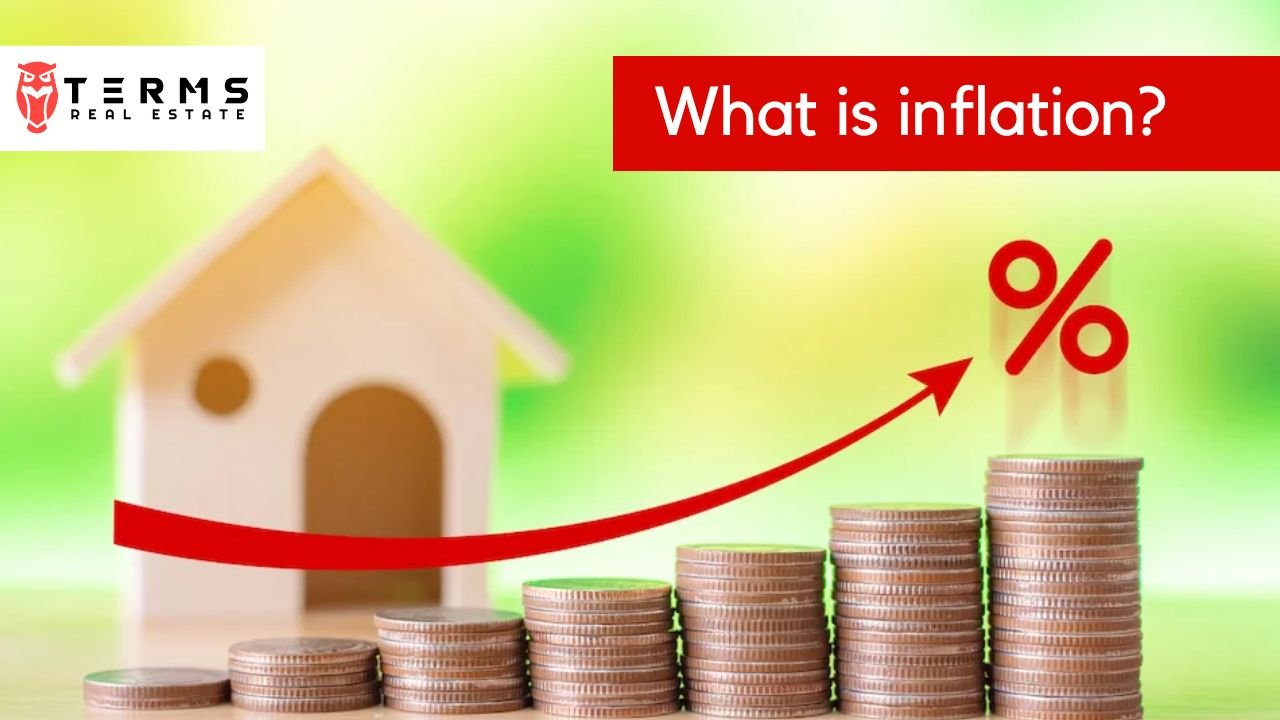Inflation affects the entire economy, from consumer spending to corporate investment and employment rates, to government programs, fiscal policies, and interest rates. Understanding inflation is crucial to invest because it reduces the value of investment returns.
What is inflation?
Inflation is a sustained increase in general price levels. As the economy grows, businesses and consumers spend more money on goods and services. In the growth stage of an economic cycle, demand generally exceeds the supply of products, and producers can increase their prices. As a result, the inflation rate increases. If economic growth accelerates too quickly, demand grows even faster, and producers increase costs continuously. In the United States, inflation syndrome is often described as “many dollars chasing few goods”; In other words, as spending exceeds the production of goods and services, the supply of dollars in an economy exceeds the amount required for financial transactions. The result is that the purchasing power of a dollar decreases.
How does inflation affect the return on investments?
Inflation poses a “stealth” threat to investors because it eliminates real savings and investment returns. Most investors want to increase their purchasing power in the long term. Inflation puts this objective at risk because the returns on investment must first keep pace with the inflation rate to increase real purchasing power. An investment that yields 2% before inflation in an inflation environment of 3% will produce a negative return (-1%) when adjusted for inflation.
If investors do not protect their portfolios, inflation can be detrimental to fixed income returns, in particular. Many investors buy fixed income securities because they want a steady stream of income, which comes in the form of interest, or coupons, in payments. However, since the interest rate, or coupon, in most fixed-income securities remains the same until maturity, the purchasing power of interest payments decreases as inflation increases.
Similarly, the increase in inflation erodes the value of the principal in fixed income securities. An investor may buy a five-year bond with a capital value of $ 100. If the inflation rate is 3% per year, the inflation-adjusted capital will fall to around $ 83 during the five-year term of the security.
Due to the impact of inflation, the interest rate on a fixed income guarantee can be expressed in two ways:
- The nominal or declared interest rate is the interest rate on securities without inflation adjustment. The nominal interest rate reflects two factors: the interest rate that would prevail if inflation were zero (the real interest rate, below) and the expected inflation rate. This shows that investors demand compensation for the loss of yield due to inflation.
- The real interest rate of an asset is the nominal rate minus the inflation rate. When considering inflation, the real interest rate is more indicative of the growth of investors’ purchasing power. If a security has a nominal interest rate of 5% and inflation is 2%, the real interest rate will be 3%.
Unlike bonds, most assets increase in price as inflation increases. Price increases can compensate for the negative impact of inflation:
- Stocks have often been a better investment to long-term inflation because companies can increase their product prices when their costs increase in an inflationary environment. Higher rates can translate into higher profits. However, for shorter periods, stocks have often shown a negative correlation with inflation and may be particularly affected by unexpected inflation. When inflation rises suddenly or unexpectedly, uncertainty about the economy may increase, leading to lower forecasts of corporate profits and lower share prices.
- Commodity prices generally increase with inflation. Commodity futures, which reflect expected future costs, can, therefore, react positively to an upward change in expected inflation.
Benefits of owning a property
Having a property is often referred to as the “American dream.” There are many obvious benefits of owning a home and also some that are not so obvious.
1) Stable monthly payments:
If you are buying a home to get a mortgage, the mortgage product you will use for the purchase is likely to be a fixed-rate mortgage, as it is the most popular type of mortgage. With a fixed-rate mortgage come stable monthly payments, which is one of the best benefits of having a home.
2) Opportunity to build equity:
When you hear people talk about real estate and own a home, one of the most popular words you will probably hear is equity. Investment in real estate is the probable market value of a house minus any lien against the property, such as a mortgage. One of the significant advantages of homeownership is the opportunity to build capital.
The longer you have a house, the more you will pay the principal balance of any lien. As a claim against a property becomes smaller, we expect the value of the property to increase, the higher the equity.
3) Owning a home offers tax advantages:
Not many people like to pay taxes, but it is a necessary evil. A great benefit of owning a home is the tax advantages it offers. Buyers who have a solid understanding of important property tax tips quickly realize that owning a home provides some substantial tax advantages.
Arguably, the most significant tax advantage of owning a home is the option to deduct the monthly interest paid from your tax returns. During the first years of the term of a mortgage, the borrower’s monthly payment is almost all interest. So at the end of the year, there is a reasonable deduction.
4) Pride of ownership and community participation:
Owning a home gives many buyers a sense of pride in their home, but also their community. The satisfaction of ownership and community participation from owning a home is another social benefit that must be considered.
Many homeowners take pride in their community and the relationships that involve participation in their community. Establishing relationships with other neighbors, local politicians, and domestic community service workers, such as local firefighters, is challenging to develop without having a home and participating in it.
Inflation is the term used to describe an increase in average prices throughout the economy. Inflation also occurs by the rise in the prices of imported products, such as oil. However, this type of inflation is generally transitory and less crucial than structural inflation caused by an excessive supply of money.



